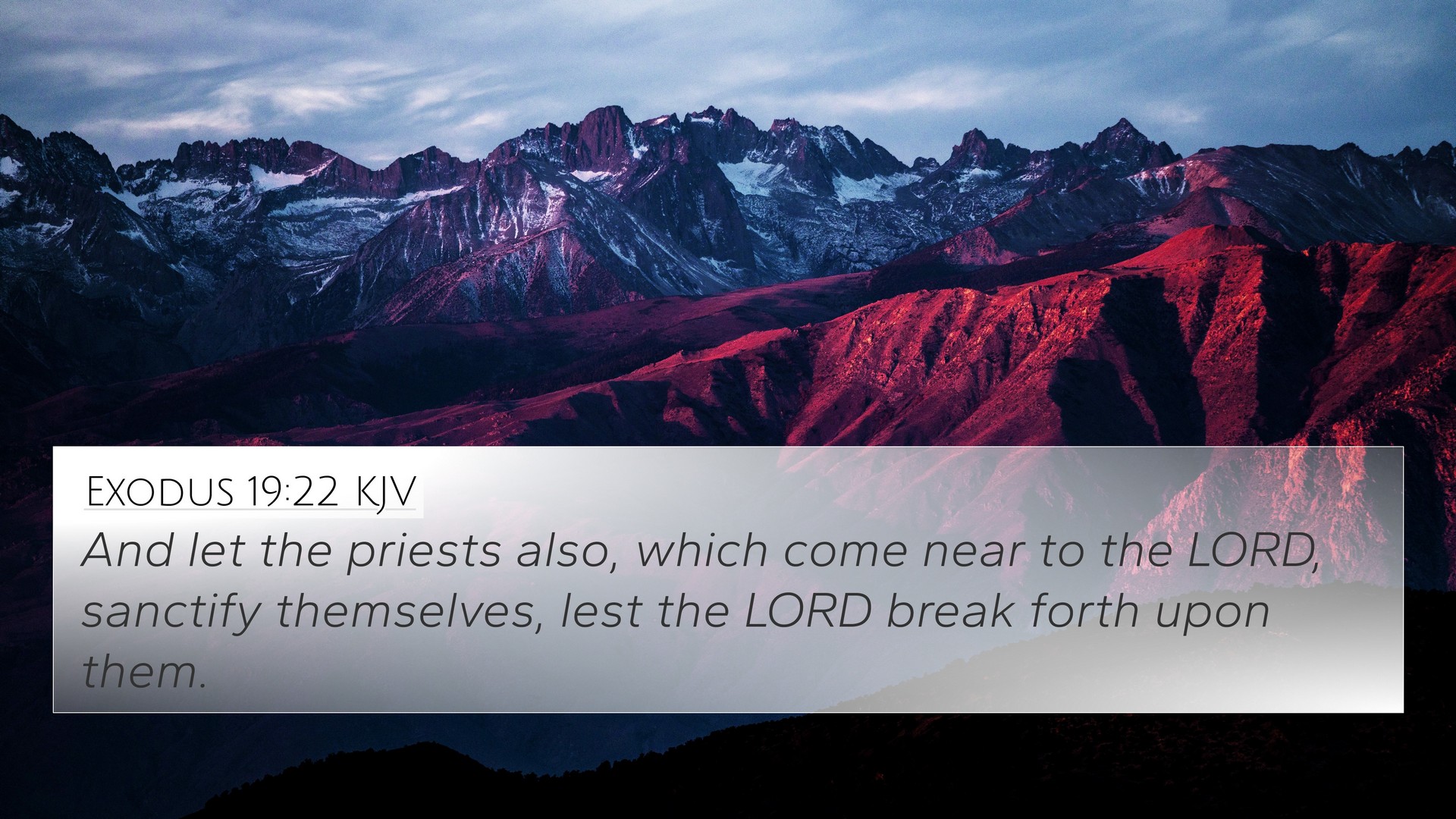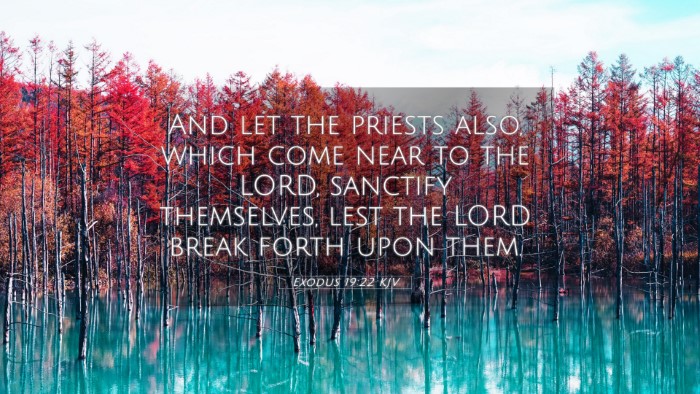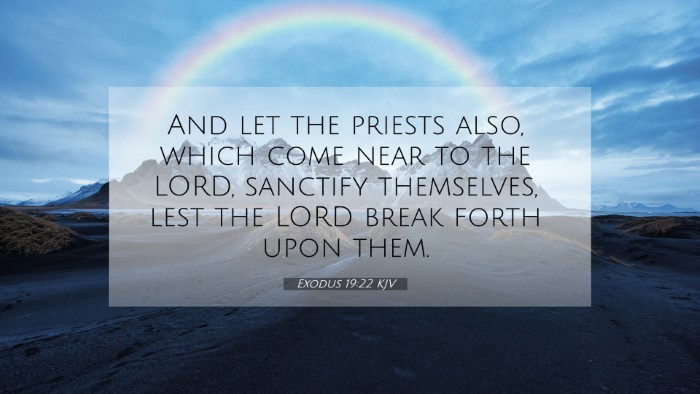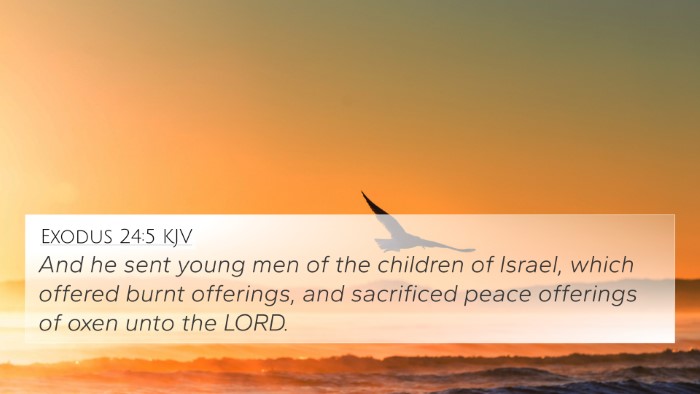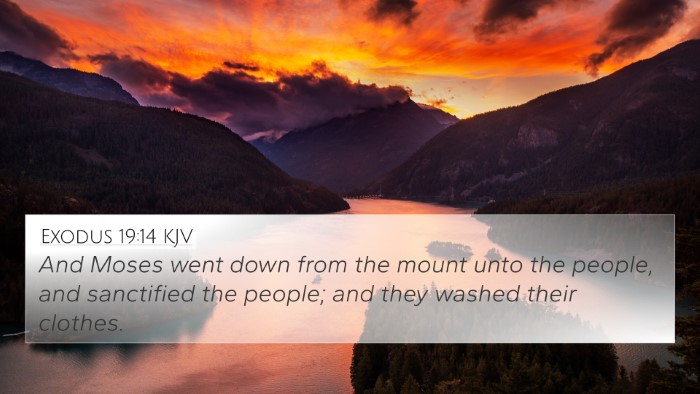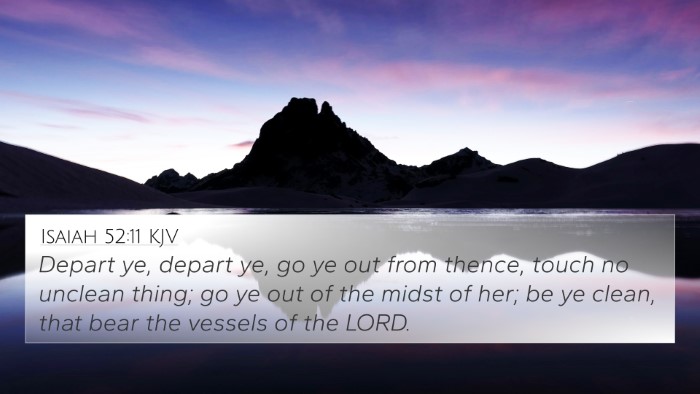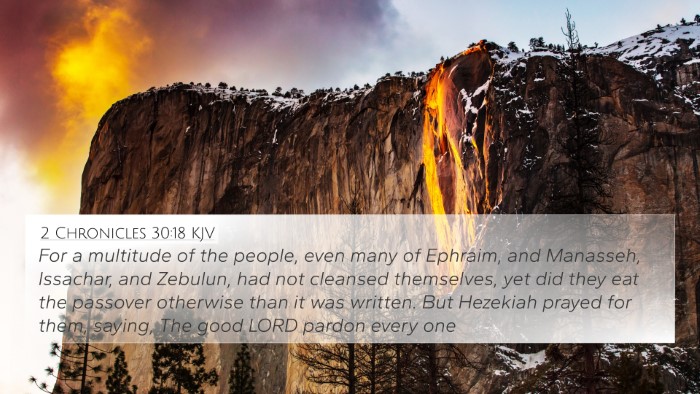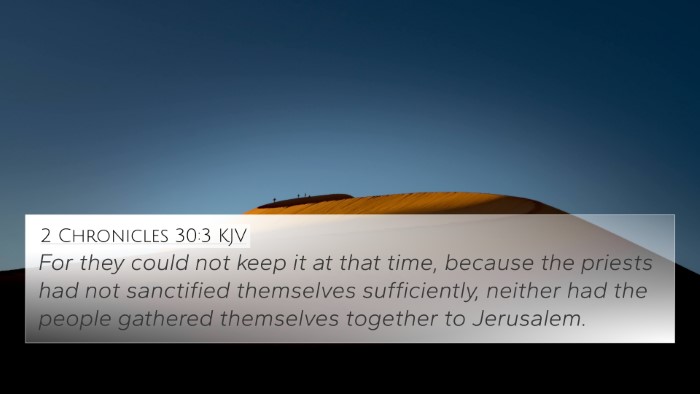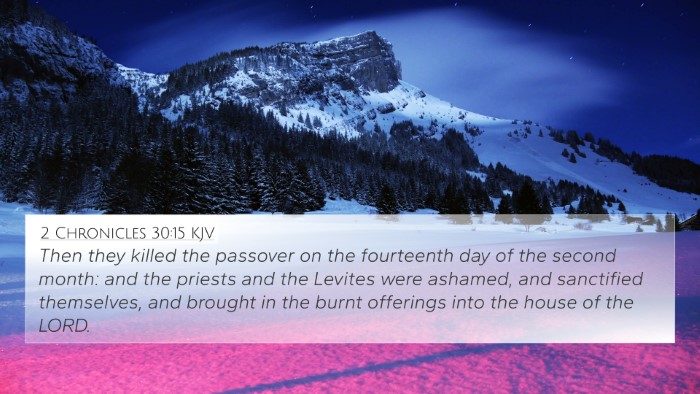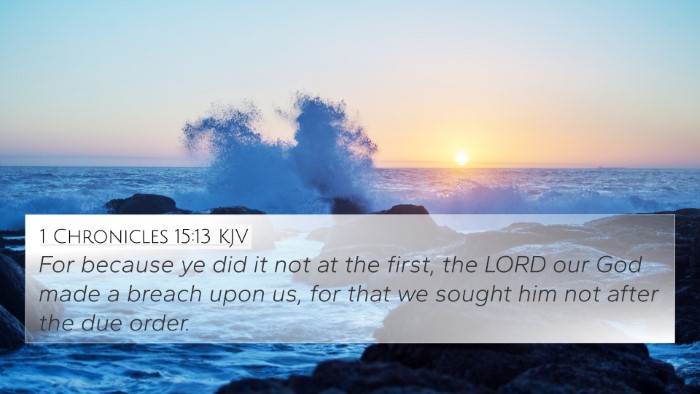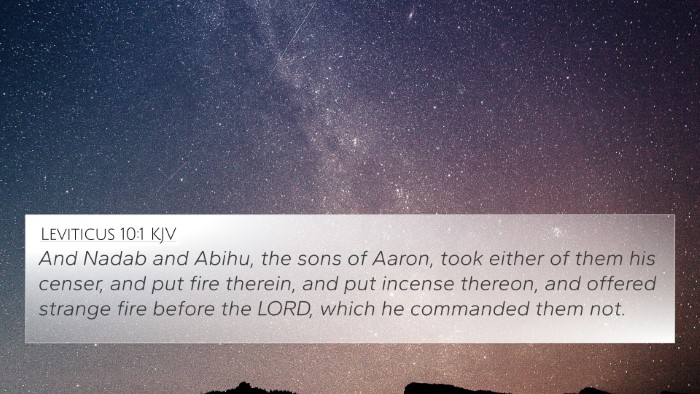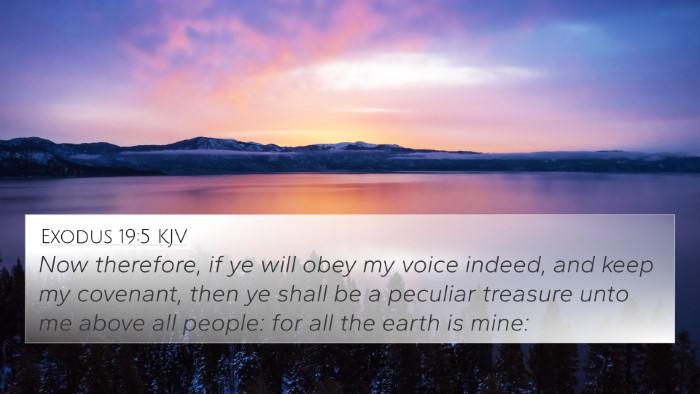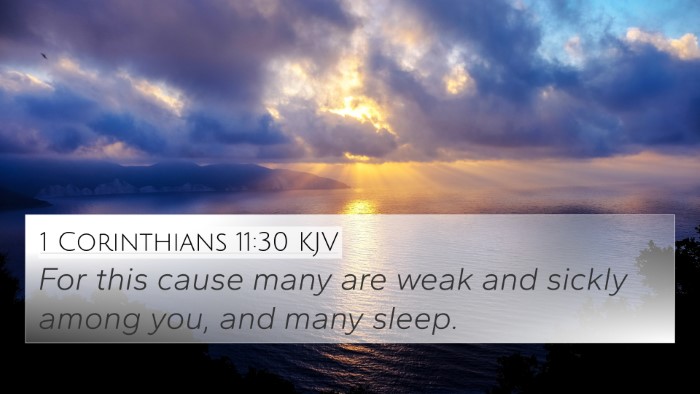Understanding Exodus 19:22
Exodus 19:22 states: "And let the priests also, which come near to the LORD, sanctify themselves, lest the LORD break forth upon them." This verse carries significant weight in understanding the holiness required when approaching God, especially in the context of worship and service. Below, we will explore the implications of this verse through insights from public domain commentaries and cross-references that enhance our understanding.
Summary of Exodus 19:22
In this verse, God emphasizes the need for sanctification among priests who are to approach Him. The holiness of God demands a corresponding holiness from those who serve Him. This highlights a recurring theme throughout Scripture: the call for purity and readiness when engaging with the divine.
Commentary Insights
- Matthew Henry: Henry notes that the priests, as mediators between God and the people, must sanctify themselves because their proximity to God necessitates a higher standard of holiness. Their failure to do so could result in severe consequences, demonstrating God’s serious approach to holiness.
- Albert Barnes: Barnes discusses the test of approachability of God. He points out that only those sanctified and made holy can stand before God. This practice is not merely ceremonial but reflects the spiritual reality of the need for internal purity.
- Adam Clarke: Clarke elaborates on the nature of sanctification, explaining that it involves not just external rituals, but also an internal transformation. He emphasizes that sanctification prepares individuals to handle the sacred responsibilities that come with serving God.
Thematic Connections
Exodus 19:22 can be thematically linked to various other Bible verses that speak of holiness and sanctification:
- Leviticus 10:3: “Then Moses said to Aaron, ‘This is what the LORD spoke of when he said: Among those who approach me I will be proved holy; in the sight of all the people I will be honored.’” This verse reinforces the idea that God must be honored in the conduct of those who serve Him.
- 1 Peter 1:15-16: “But just as he who called you is holy, so be holy in all you do; for it is written: ‘Be holy, because I am holy.’” Peter echoes the call to holiness, linking believers in the New Testament to the same divine standard of purity.
- Isaiah 52:11: “Depart, depart, go out from there! Touch no unclean thing! Come out from it and be pure, you who carry the articles of the LORD's house.” This verse highlights the idea of physical and spiritual separation from impurity when serving God.
- Hebrews 12:14: “Make every effort to live in peace with everyone and to be holy; without holiness no one will see the Lord.” This reinforces the necessity of holiness as an essential attribute for those who wish to draw near to God.
- James 4:8: “Draw near to God, and he will draw near to you. Cleanse your hands, you sinners, and purify your hearts, you double-minded.” This verse presents a practical application of the call to sanctification before approaching God.
- Revelation 21:27: “Nothing impure will ever enter it, nor will anyone who does what is shameful or deceitful, but only those whose names are written in the Lamb's book of life.” This verse reflects God’s ultimate standard of holiness and purity required for communion with Him.
- Matthew 5:8: “Blessed are the pure in heart, for they will see God.” This beatitude emphasizes that purity of heart is crucial for the experience of God’s presence.
- Romans 12:1: “Therefore, I urge you, brothers and sisters, in view of God’s mercy, to offer your bodies as a living sacrifice, holy and pleasing to God—this is your true and proper worship.” This connects the call for sanctification to the broader theme of worship.
- Philippians 4:8: “Finally, brothers and sisters, whatever is true, whatever is noble, whatever is right, whatever is pure, whatever is lovely, whatever is admirable—if anything is excellent or praiseworthy—think about such things.” This verse addresses the importance of maintaining purity in thought, which is integral to holiness.
Cross-Referencing Biblical Texts
Cross-referencing biblical texts is an essential aspect of studying the Scriptures as it helps to draw connections and deepen understanding. Tools such as a Bible concordance or cross-reference guide can be invaluable in this pursuit. Below are practical insights into how to utilize these tools for effective Bible study:
- Tools for Bible Cross-Referencing: Utilize a concordance to find how often themes like holiness, sanctification, and worship appear within the Bible.
- How to Find Cross-References in the Bible: Look for parallel passages in both the Old and New Testaments where the themes of approach and holiness are discussed.
- Cross-Referencing Bible Study Methods: Integrate comparative analysis by placing verses side by side to observe similarities in themes and commandments.
Exploring Further Thematic Bible Verse Connections
As we reflect further on Exodus 19:22 and its implications, it is important to understand how this verse parallels with other scriptures that discuss similar themes. Here are some suggested resources to explore deeper inter-Biblical dialogue:
- Bible Reference Resources: Resources that provide commentary and cross-references can amplify understanding by revealing connections between scripture passages.
- Cross-Referenced Themes in the Bible: Analyze the overarching themes of holiness and purity, especially how they transition across Testaments.
Conclusion
Understanding Exodus 19:22 in the context of the entire Bible reveals crucial insights into the character of God and the expectations He has for those who serve Him. Through a systematic approach to cross-referencing, the rich tapestry of scripture can be observed, unveiling comprehensive truths about divine holiness and our call to purity. Strive to incorporate these themes into your life and study, finding strength in the connections between Bible verses that guide us toward deeper spiritual understanding.
